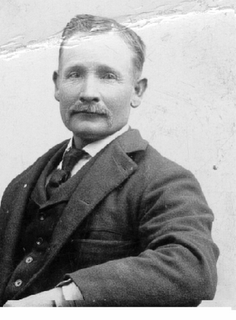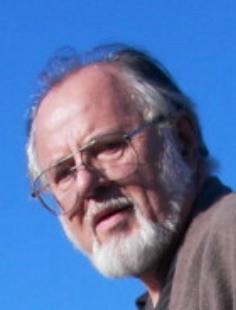One more Mormon Missionary Story
One more Mormon Missionary Story.
I will leave one more Mormon Missionary story here. I am leaving for Panama City Beach in Florida tomorrow, and will probably be out of touch for a week. I am using another of those Time Shares that I wrote about last fall.
At the conclusion of our mission training we were walked to the railroad station and put on a train. It was neat that as we approached the station we saw President Mc Kay, the man we considered to be a prophet, standing on the front porch of the station talking to a porter. As he became aware of our presence he turned, shook all our hands and wished us a wonderful mission. It seems so different than now. If you ran across the Church President anywhere in Salt Lake City today, except in his home, he would now be surrounded by security men and folks like that.
There were eight or nine missionaries in our group. Most were headed to New York to make connections with ocean liners for the trip. At least a couple were scheduled for a missions in or near Chicago and were picked up there. All arrangements had been made by Murdoch Travel in Salt Lake, although my ticket had come from my dad’s system pass as a U.P. railroad employee. Murdoch (I presume, paid by the church) paid for the Pullman fee and anything not covered by the pass, and made all the reservations. We each met Brother Murdoch, of Murdoch Travel individually to receive our tickets and reservations. There were two of us going to Finland. I had been set apart as the group leader or senior companion of the two of us, but someone else was the group leader for the whole bunch of travelers. We had a couple of layovers, and had the opportunity to leave the train at Niagra Falls, go see the falls and wander around. I don’t know whether it was on the “going” trip or on our return, but on one of these, arrangements had been made for us to get off the train, (probably in Cleveland) and a little bus took us down to Kirtland, where we saw the temple and went through it with an RLDS guide. It is a vivid memory but I am not sure how it worked. In my journal I write about the visit to Niagra Falls but it says nothing about a trip, to Kirtland, so I may have imagined that whole thing. We did, it seems go to a movie, even though it was Sunday. (I am beginning to really understand why the church moved to flying missionaries wherever they go)
It took two or three (or four or five) days to cross the country. When we arrived in New York City, we were bussed to the Wellington Hotel in Manhattan where we stayed on the top floor in what was probably designed as a Penthouse Suite. It had several rooms but each room was full of single beds and it was a virtual dormitory situation. There were several elders who were there when we arrived, waiting for ships to “somewhere”, and who left before we did. Others came after us and were still there when we left. I am not sure what practicality was involved in this “staging area” but I am sure there was some. While I was there, I picked up my Finnish visa from the consulate, and I wrote in my journal that we (some other elders and myself) went to the Radio City Music Hall to see the movie Brigadoon, and to see the Rockettes and the stage show, after which we went to the Latin Quarter and the Copacabana (both famous nightclubs), activities that I am sure are beyond the imagination of most current missionaries. They are almost beyond my imagination. The one thing I remember best about the hotel was that our suite had more than one bathroom and in one of the bathrooms was what I now know to be a bidet. It was unknown to us, and I vividly remember three or four rural Idaho missionaries standing around the plumbing fixture, tripping the flush button, and wondering about its purpose. I think that the general conclusion was that it was designed to save toilet paper. (But no one in our group felt inclined to test the theory.)
We sailed at 10:00 AM, September 21 on the SS Stockholm of the Swedish American Lines. Compared to the other ships in Port, she was a truly beautiful ship. She had a long pointed bow, almost like some kind of yacht. Compared to her, the other ships looked stodgy and pedestrian. I had no idea that only a few years later she would become world famous by colliding with an Italian ship the Achille Lauro, and sinking it in New York harbor. Sailing on that ship was the most luxurious experience of my life. Elder “John Doe” and I were the only missionaries on the ship, and theoretically we were supposed to be companions with me as the group leader. Although we were new at the companion business, I knew that we were supposed to be together all the time, but we weren’t. What the group leader assignment meant to me was that I laid awake and worried several nights about where Elder Doe was when he was late coming back to the cabin. A couple of times he was REALLY late and I was REALLY worried, but I didn’t know how to get him to stay with me or to stay effectively close to him. I could turn my back to pick up a cookie and when I turned back around he was gone and I wouldn’t see him for several hours. I make that sound bad, but we were together a most of the time as well.
My task as a “group leader” wasn’t made easier by our dinner table assignment. We were assigned to sit at particular tables for meals, and at our table we had us, and four really beautiful Scandinavian single girls. I don’t remember all their names, but one was Bodil Ellerhammer (who could forget that name) who was a really gorgeous brunette from Copenhagen, Denmark. One of the other girls was named Heddi. The first evening afloat was a dance, to which we both went, and spent the whole night trying to explain to girls who asked us to dance (actually, mostly Doe) why we couldn’t dance (to missionaries, dancing is not allowed.). We had a lot of fun anyway.
Meals were awesome. Breakfast and lunch were usually buffet, though our steward (I think his name was Hans, which isn’t a Swedish name, though he was Swedish) would get breakfast for us if we wished. Lunch was smorgasbord (which is natural since the Swedes invented it) Dinner was menu driven but we had two or three choices of each course, and desserts were obscene. At meals, we frequently swiped the girl’s cigarettes, giving them back only after the meal was over. It was kind of a silly game of “ No Smoking during dinner”. During the day there was shuffleboard, ping pong, pool, (both swimming and pool table) and they had chess tournaments, checker tournaments and you could go to the fantail and shoot skeet or drive golf balls into the ocean. We met and became friends with several other people. I remember Jane Bowen who was a very pretty ballet dancer who was going to Stockholm to work, Conrad Borowski who was from Poland and who humiliated me in the checkers tournament. We got to the championship and neither of us had lost a game. In the championship he blindfolded himself for the second game (it was two out of three), and he slaughtered me just by telling me which of his men to move to which square and asking me where I had moved. It was not really humiliating, more inspiring, but it was quite an experience. When we got to Copenhagen two of the three girls we ate with and Lilian Sorenson who didn’t sit with us but who had become GOOD friends with “Doe” all disembarked. We went to see them off and Bodil, just as she was leaving turned and planted a massive kiss on “Doe”. He stood there, hands at his side and (slightly) trying to get away. Judging from Lillian’s looks, the resistance was as much for her behalf as mine, but before Lillian could match the farewell, I, kind of, got between “Doe” and the other exiting folks.
The next day, we arrived in Gothenburg, which was our final stop. As the ship was coming to shore, "Doe" and I and Heddi and Jane and “someone” were giggling and exchanging addresses, and they were threatening to kiss us both on the gangplank etc. to the degree that we were late to the exit, and we found the Gothenburg District President there to meet us. He almost caught us giggling like little kids with the girls. I was most relieved that he didn’t.
We took the train to Stockholm where we had two days to wait until we took the ferry to Turku, Finland. We looked all over for the Swedish Mission headquarters and couldn’t find it, so we spent the rest of the time riding streetcars to the end of the line and back. We left for Finland on the SS Birger Jarl at about 6:30 PM, and reached Turku the next morning. We caught a ride from Turku to Helsinki with an auto importer, Tauno Matila, from Helsinki who was taking a little Saab to his car dealership. The Saab was interesting. It had a lot of power for a little bitty car, and when you bought gas, you mixed oil with the gas like you do for a motorcycle or a lawnmower. He bought us lunch along the way and took us right to the Ullankatu 3 A 4, the mission headquarters. Everyone seemed surprised, it appeared that, as a result of the ride, we had arrived a day early.


